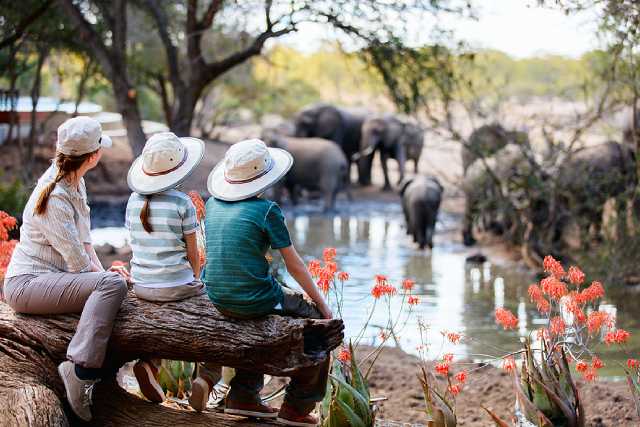
A safari is one of those experiences that often sits right at the top of the bucket list. The thought of heading out into the wild, spotting elephants at a watering hole, or watching a lion stride across the savannah is nothing short of thrilling. That buzz of excitement is hard to beat, and as the countdown to your trip begins, it’s natural to be caught up in imagining the incredible sights and sounds waiting for you.
Yet, in the midst of all that anticipation, many travellers overlook one of the most crucial aspects of a safari: safety. Beyond choosing the perfect lodge or the right camera lens, ensuring you are well-prepared to stay safe should be your top priority. After all, this isn’t just another holiday; you’re stepping into an environment where nature is at its most raw and unpredictable. Planning ahead and taking proper precautions can make the difference between a smooth adventure and a trip that takes a sudden, unwelcome turn.
Choosing the right safari operator
One of the first safety decisions you’ll make is selecting a reliable safari operator. Not all providers are created equal, and the cheapest deal might not be the wisest option. Look for companies with strong safety records, trained guides, and properly maintained vehicles. A good operator won’t just take you from one wildlife sighting to another. They’ll also make sure you know how to behave in the bush, keep a safe distance from animals, and respond appropriately in unexpected situations.
It’s worth reading reviews and asking questions before booking. How do they handle medical emergencies? Are their vehicles equipped with first aid kits? Do their guides hold certifications in first aid and wildlife safety? These details might seem small, but they carry huge weight once you’re out in the wilderness.
Preparing for health and medical needs
Before you leave, consult a travel clinic to check which vaccinations are recommended or required for your safari destination. Malaria prevention, yellow fever vaccination, and up-to-date routine immunisations are often part of the checklist. Carrying a basic medical kit with essentials like plasters, antiseptic wipes, antihistamines, and any prescription medications is also a must.
For extra peace of mind, consider how you’d get medical support if something serious were to happen. While most safaris run smoothly, remote locations can pose real challenges if you need urgent care. In fact, many seasoned travellers make it a point to know about air ambulance services. For example, if you’re based in Asia, options such as an air ambulance in Singapore can act as a vital lifeline should evacuation be required from far-flung safari destinations.
Listen to your guide, they know best
When you finally set off on game drives, one of the most important safety tips is also the simplest: listen to your guide. These professionals have spent years learning animal behaviour and understanding the land. If they ask you to stay in the vehicle, keep your voice down, or avoid making sudden movements, it’s for good reason.
Wild animals are unpredictable, and even the gentlest-looking creature can pose a threat if startled. Following instructions not only ensures your safety but also respects the wildlife you’ve come to see. Remember, you’re a guest in their home, not the other way around.
Packing smart for safety
Your safari packing list should go beyond just clothes and cameras. Think safety-first items, too. A head torch can be handy for moving around camp after dark, while insect repellent reduces your risk of mosquito bites. Sturdy, comfortable shoes are essential if your safari involves any walking, and a wide-brimmed hat will protect you from the harsh midday sun.
It’s also worth carrying copies of your important documents, like passport, insurance papers, and emergency contact numbers, in case of loss. Keeping a small emergency kit with rehydration salts and painkillers can save you a lot of discomfort.
Road and vehicle safety
Many safaris involve long hours in vehicles, sometimes over rough terrain. Always fasten your seatbelt where provided, and avoid standing up or leaning out unless your guide says it’s safe. Vehicle accidents, though not common, can and do happen, particularly on uneven tracks. Choosing an operator with well-maintained vehicles reduces this risk significantly.
Respect the environment and wildlife
Another key part of safari safety is respecting the environment. Don’t litter and don’t feed the animals. Doing so can alter their natural behaviours and create dangerous situations. Keep noise levels low and always follow the rules of the park or reserve. By keeping safety and respect in mind, you’re helping to protect both yourself and the wildlife.
Having an emergency plan
No one wants to think about worst-case scenarios on holiday, but it’s essential when heading somewhere remote. Check what emergency procedures are in place with your safari operator and ensure you have travel insurance that covers medical evacuation. Knowing there’s a plan in place provides reassurance and allows you to focus on enjoying your trip.
This is also where researching and preparing for safety risks abroad pays off. Whether it’s understanding the medical facilities available in your destination or knowing how to contact your embassy, a bit of preparation goes a long way.
Staying aware throughout your trip
Even once you’re there, don’t let your guard down. Staying alert to your surroundings is part of the safari experience. Keep hydrated, protect yourself from the sun, and be mindful of your energy levels. Safaris can involve early starts and long days, so pacing yourself is important.
Equally, trust your instincts. If something doesn’t feel right, whether it’s a health issue or a situation on the ground, speak up. Your safety is always worth more than a photo opportunity.
A safari to remember safely
A safari has the power to be one of the most incredible adventures of your life. From the breathtaking landscapes to the unforgettable wildlife encounters, it’s an experience you’ll carry with you forever. But to make sure those memories are all positive, safety has to come first. Taking the time to choose the right operator, prepare for medical needs, pack wisely, and respect the environment can make a difference.
If you’re planning your own safari, remember that adventure and safety go hand in hand. The more prepared you are, the freer you’ll feel to soak up every magical moment.
EMA Global offers medical evacuation, repatriation, and air ambulance services, ensuring that wherever your travels take you, expert care is always within reach.

